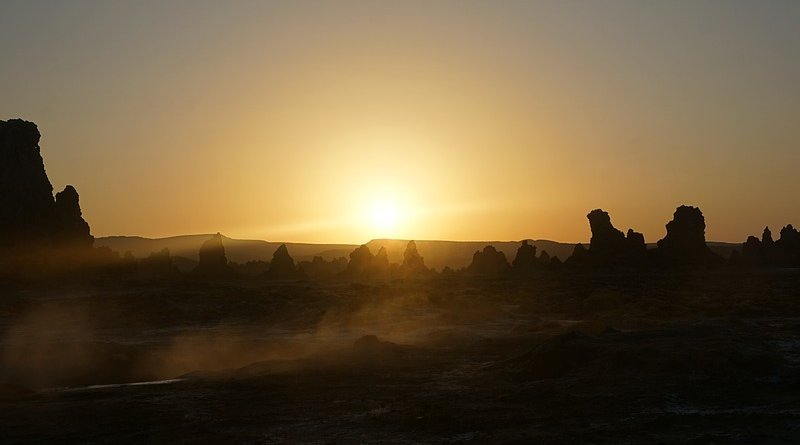The Horn Of Africa States: The Journey – OpEd
The journey started in 2004, when we first wrote on the possibility of relooking into the hundred something year old history of the region, generally marked by the presence of Europe in the region and its curving to serve European interests without considering what the region really wanted or its natural evolution. We presented on why the region should form its own regional block as opposed to the disparate unitary states it was and which were at each other’s throats, all the time. We presented the case on many occasions in books and papers that were presented to the leaders of the four countries of the region either directly or through their envoys and diplomats.
The journey continued and it led to the first glimpse of the possibility of realization when in February 2020, Eritrea’s President Isais Afwerki, hosted Ethiopia’s Prime Minister Abiy Ahmed and Somalia’s President Mohamed Farmajo. Only President Ismail Omar Guelleh was missing from this first encounter of the region’s leaders. The three leaders present in that meeting decided at the time to work together and cooperate in securing peace and stability in the region and hence economic and social development.
The concept was to create a truly Cushitic alliance as opposed to the Intergovernmental Authority for Development, a failed outfit based in Djibouti and which was originally created as an NGO to assist the Governments of East, Northeast and Horn African states that were generally affected by climate change and desertification and other climate related problems. IGAD despite its original mandate was taking on political and security issues in countries that do not share many things. Some were members of other regional blocks that are far ahead of what the Horn of Africa States (“HAS”) represents, in the present and some were, indeed, more malleable to join and work with others instead of HAS, while still others did not share the ethnic character of the Horn of Africa States. Keeping them in the same grouping would have been a formula for disagreements and hence disasters and eventual failures, as IGAD has demonstrated.
Many changes have occurred since that first official encounter among some of the leaders of the region, including the breakout of a disastrous civil war in Ethiopia, change of leadership in Somalia, near breakup of relations between Somalia and Djibouti and its later mending. Only one factor remained unchanged – the border freeze between Djibouti and Eritrea. The Great Ethiopian Renaissance Dam effectively became a reality when the Government of Ethiopia started to fill it and it is hoped it would soon provide energy to the region and beyond. The region continued to suffer from climate changes and hence drying up of many parts, endangering both human and animal life.
Like any other project, the Horn of Africa States has its own pitfalls and it continued to stumble from time to time. Those who do not have the best interest of the region in their mind continued to pester it and the many forces arrayed against the region such as the terror groups, so-called liberation movements and other malicious political maneuverings continued in the region over the past several years, some with great intensity and others with greatly subtlety. However, the dream remains strong for a united and integrated Horn of Africa States region that would be self-sufficient, exploiting its highland, lowland, and marine resources for the benefit of the region’s population.
The most important goal in the coming year and those beyond would have to include bringing together the leaders of the region, keeping the ambition alive and kicking, and indeed, continuing to emphasize on the advantages of the regional collective as opposed to the singularity in attending to national issues. The world of today works better when the markets are larger and it works better when the defense is through the collective, and it still works better, when processes and procedures of doing things are seamlessly handled through less costly frameworks and infrastructures.
Efforts to construct the region would take time, no doubt, and it is always better to have the patience, the wherewithal and perseverance to hold the goal steady and on an even keel. It is whey we urge the policymakers of the region, its administrative structures, its academicians and potential leaders in its youthful population to reflect upon and work towards the realization of the Horn of Africa States, a powerful, fully self-sufficient and strong region that sits at its place among the nations and other regional blocks of the world.
United the region would stand, and divided, it would fall. It should learn from the experiences of all the other regional blocks that have so far been created and take the best of them, avoiding the mistakes they made. It is the way of humanity and the way of the wise.

